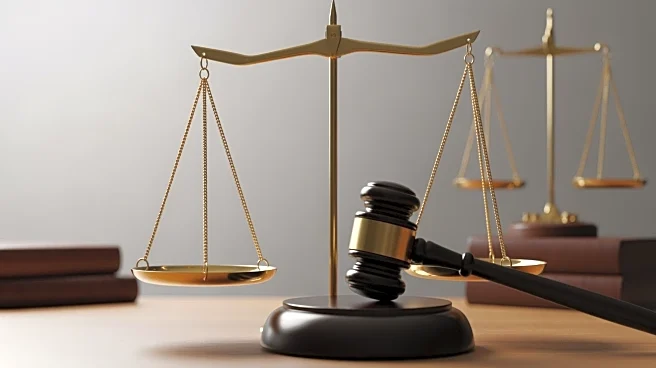What's Happening?
Alina Habba's appointment as interim U.S. Attorney has sparked controversy and legal debate. Appointed by President Trump, Habba's designation bypassed traditional Senate confirmation and judicial appointment processes,
raising questions about its consistency with longstanding Justice Department practices. During a U.S. Court of Appeals session, Henry Whitaker, counselor to the attorney general, struggled to justify the appointment, leaving the court unsatisfied with his explanations. This situation highlights the complexities and potential irregularities in the appointment process for U.S. attorneys.
Why It's Important?
The controversy surrounding Habba's appointment is significant as it challenges established norms and procedures within the U.S. legal system. Such appointments, if not properly vetted, could undermine the integrity and independence of the judicial process. This case may set a precedent for future appointments, influencing how interim positions are filled and scrutinized. It also raises concerns about executive overreach and the potential erosion of checks and balances, which are fundamental to maintaining a fair and impartial legal system.
What's Next?
The legal community and political observers are likely to continue monitoring this case closely. The court's dissatisfaction with the explanations provided may lead to further legal challenges or calls for reform in the appointment process. Stakeholders, including lawmakers and legal experts, may advocate for clearer guidelines and stricter adherence to established procedures to prevent similar controversies in the future. The outcome of this case could influence future appointments and the overall approach to interim designations within the Justice Department.









